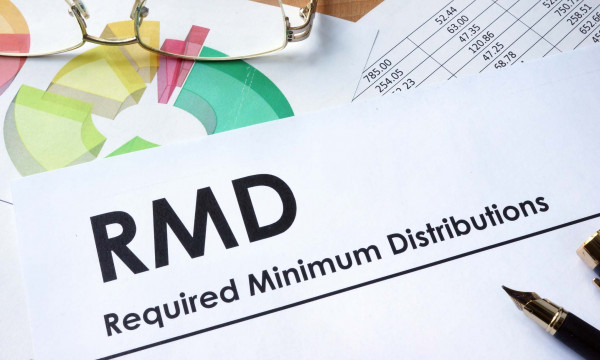Updating your beneficiaries cements your estate planning

What will be the legacy you leave to your heirs when you pass? Will your inheritance be clearly defined, or will there be ambiguity that causes issues in distributing your assets according to your wishes?
According to recent research, while only 15% of grown siblings admit to conflicts over money, 70% of those financial conflicts are directly related to their parents. And the top reason for those conflicts? How an inheritance is divided.
You can take the guesswork out of settling your estate to eliminate those feuds, however. One of the best ways to ensure your family knows your wishes is by performing regular reviews of your beneficiary information, including the naming of contingent beneficiaries.
Some opportune times to review your beneficiary designations to make sure they comply with your wishes and estate planning documents are as follows:
- Annually. Perform a regular annual review to make sure that your assets have primary and contingent beneficiaries assigned. This will help you review newly funded assets each year.
- After major life events. Beneficiaries should be reviewed after weddings, births of children, deaths of parents and loved ones, and divorces.
- Estate planning and taxes. Any estate planning meetings or tax filings should include a thorough review of beneficiaries.
Beneficiaries supersede other estate planning
Although your will or revocable trust governs the distribution of many or most of your assets, certain assets — such as retirement plans, insurance policies, and bank or brokerage accounts — require you to name a beneficiary (or beneficiaries). This can be an advantage because when you die, the funds can pass directly to your beneficiaries without going through probate. To avoid unpleasant surprises, it’s critical not only to choose your beneficiaries carefully but to name contingent beneficiaries in the case of a primary beneficiary dying before you.
Have you named contingent beneficiaries?
Suppose a beneficiary passes away before you, but you haven’t named a contingent beneficiary when you die. If you haven’t named a contingent beneficiary, the disposition of the funds depends on the type of asset.
Take, for instance, the distribution of retirement plan assets. For retirement plans, the plan document might call for plans to go to your spouse, or if you’re not married, to your estate. Leaving retirement plan money to your estate can have undesirable consequences. For one thing, they’ll be distributed according to the terms of your will, which may not be how you wanted the funds distributed. In addition, the ability to extend the life of the IRA and taxability would be limited and may have undesirable tax consequences for your heirs.
For other assets, having funds run through your estate can lead to unfortunate results. Suppose, for example, that your will leaves your entire estate, valued at $1 million, to your son. You also have a $1 million life insurance policy for which you’ve named your daughter as beneficiary. If by some tragedy your daughter dies before you and you haven’t updated your beneficiary designation or named a contingent beneficiary (likely your daughter’s children), then your son would inherit everything, effectively disinheriting your daughter’s children.
Have a backup plan
To ensure that your wishes are fulfilled, name at least one contingent beneficiary for each primary beneficiary. Contingent beneficiaries can be virtually anyone you choose, including distant family members, friends, your trust, or even charitable organizations. You will want to coordinate these with your estate planning documents.
If you have any questions regarding beneficiary designations, we encourage you to reach out to UBT’s Personal Trust team. We’d be pleased to help.
We hope you found some of our tips helpful! This article is part of the Planning for the Future, part of UBT's Five Principles of Financial Wellness Series.
|
Learning Center articles, guides, blogs, podcasts, and videos are for informational purposes only and are not an advertisement for a product or service. The accuracy and completeness is not guaranteed and does not constitute legal or tax advice. Please consult with your own tax, legal, and financial advisors.




